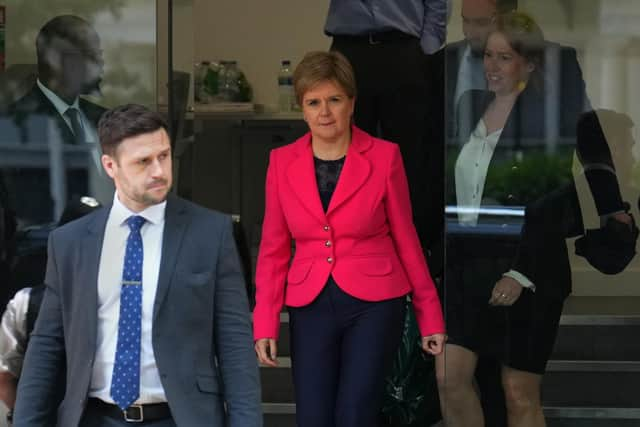Does Scotland need to have a separate Covid Inquiry? - Ben Zielinski
Fast forward to June this year, Ms Sturgeon was again talking about Covid-19 and public inquiries. She stated that “learning from the pandemic is of critical importance, and this public inquiry has a central role to play in ensuring that those lessons are learned.” However, Ms Sturgeon was referring to the UK-wide Inquiry, public hearings of which formally commenced on 13 June and to which she was giving evidence.
In my opinion, noting that the Inquiry’s Chair, Lady Poole resigned late last year, the Scottish Inquiry has stumbled out of the starting blocks.
Advertisement
Hide AdAdvertisement
Hide AdThe Inquiry began with “scene-setting evidence” provided by Dr Ashley Croft, whose credibility had previously been called into question by the High Court. Arguably, appointing such a controversial figure to provide “a factual background to support all further investigations and hearings” risked undermining the credibility of the Inquiry.


Unsurprisingly, some might question the point of a separate Scottish Inquiry, noting the UK-wide Inquiry has already scheduled a module examining Scotland’s “core political and administrative decision-making” in response to the pandemic.
There is obvious potential for these inquiries to overlap, a point the inquiries have sought to address by signing a Memorandum of Understanding setting out how they will work together. However, I’d suggest it’s inevitable some similar ground will be covered north and south of the border.
Moreover, there are potential legal difficulties running a devolved Inquiry. In June 2023, the new Chair of the Scottish Covid-19 Inquiry, Lord Brailsford, had to apply for leave to intervene in the Cabinet Office’s judicial review of the UK Covid-19 Inquiry’s section 21 request for Boris Johnson’s WhatsApp messages.
The court’s judgment on the Johnson WhatsApps had the potential to significantly impact on the Scottish Inquiry’s ability to procure evidence. Yet the Chair of the Scottish Inquiry was not automatically party to it.


There are also difficulties with the potential for divergent recommendations, as seen in the past with the contaminated blood scandal, which saw a UK inquiry (the Infected Blood Inquiry) and a Scottish inquiry (the Penrose Inquiry) investigating the same events. Though not concurrent, the UK-wide Infected Blood Inquiry arguably made stronger recommendations, including interim payments of £100,000 to victims’ families.
Nevertheless, if the Penrose Inquiry is indicative, there could be benefits for Scotland to hold its own Covid-19 Inquiry. While some may surmise that the Scottish Covid-19 Inquiry’s recommendations could be less far-reaching, they are likely to be reached more quickly than at least some of the UK Inquiry’s recommendations, which may not be finalised for years.
Of course, there are also good legal reasons for the existence of a separate Scottish Inquiry. People living in Scotland are governed both by UK-wide laws and devolved laws. In Scotland, the response to the pandemic involved both Scottish and UK authorities.
Advertisement
Hide AdAdvertisement
Hide AdFurthermore, a Scottish Inquiry may also be better able to press Scottish decision-makers for answers. In her evidence to the UK Inquiry, Ms Sturgeon suggested her hands were tied by UK government decision-making on non-devolved issues.
Consequently, within the confines of a purely Scottish inquiry, the spotlight can more readily shift from Whitehall to shine a light on how effectively the Covid-19 pandemic was handled by Holyrood. Time will tell.
Ben Zielinski is a principal associate, Shoosmiths
Comments
Want to join the conversation? Please or to comment on this article.